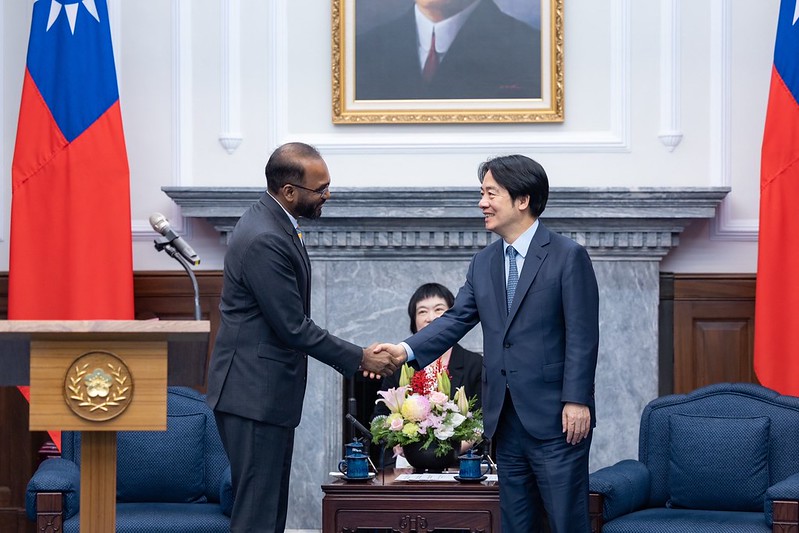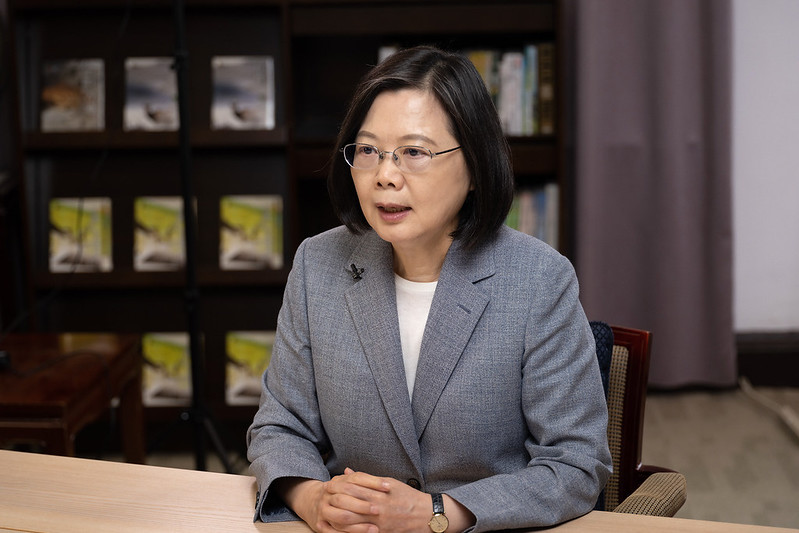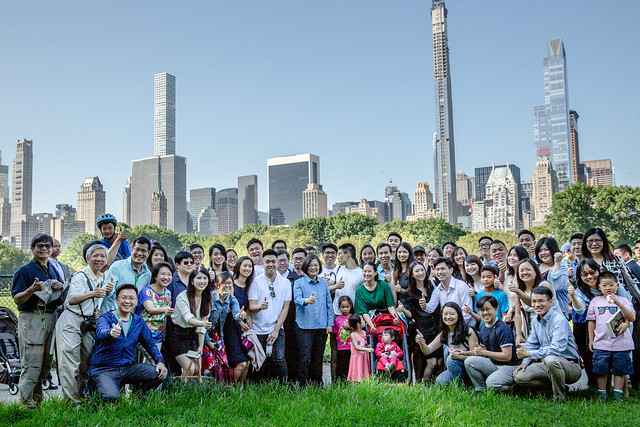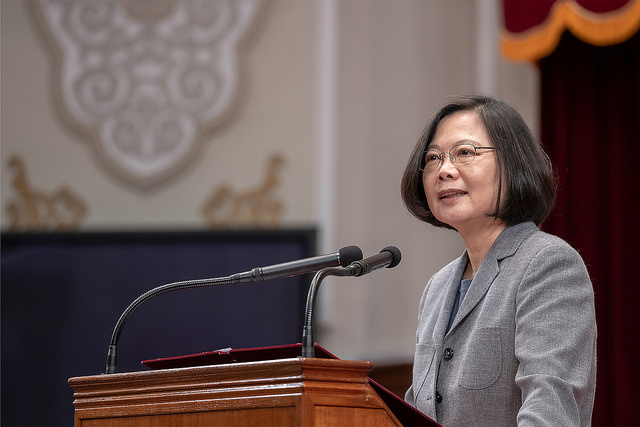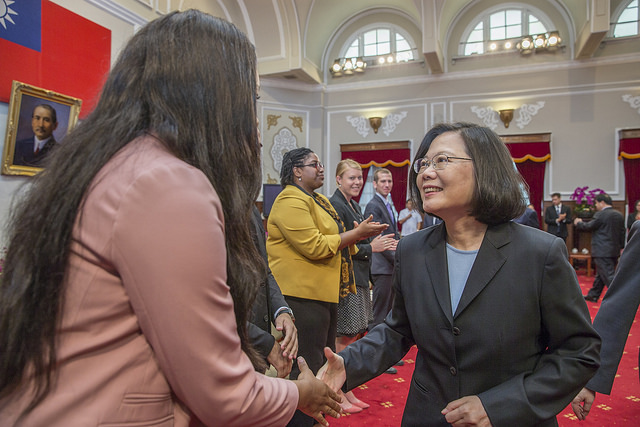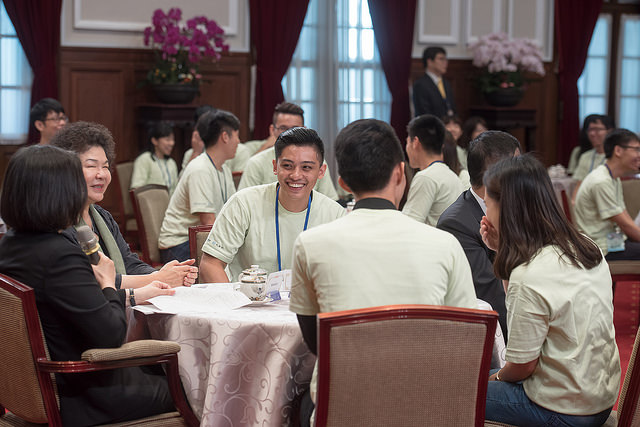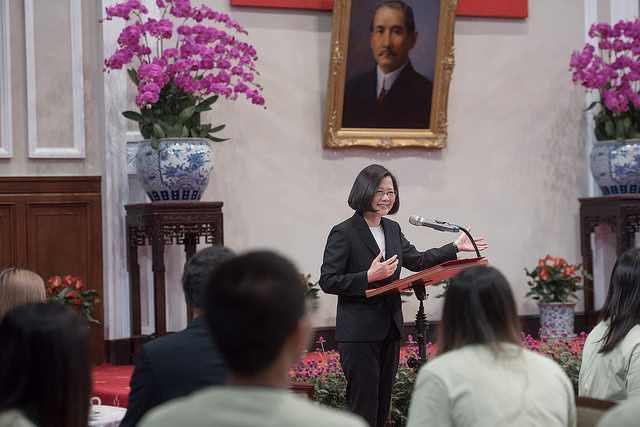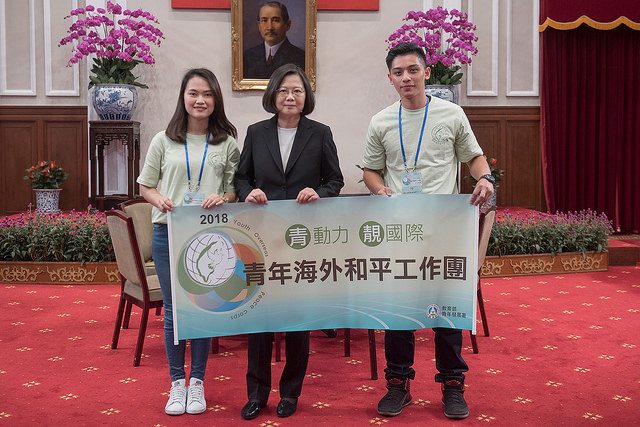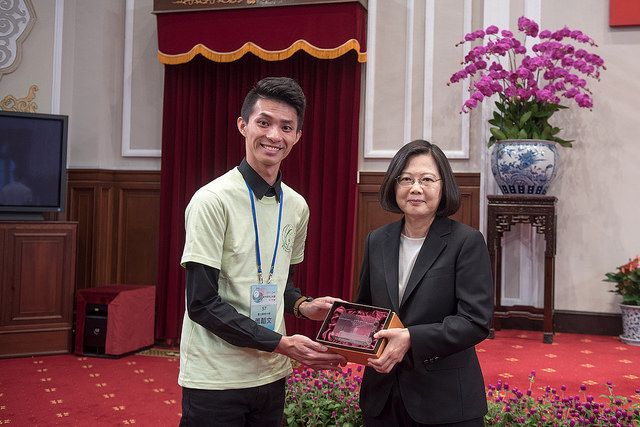News & activities
 News releases
News releases
On the morning of June 12, President Tsai Ing-wen met with volunteer representatives from the 2018 Youth Overseas Peace Corps, and said that Taiwan will not close itself off due to China's suppression. On the contrary, we'll continue to take the initiative and act based on our values, so that gradually, there will be no way for international society to overlook Taiwan's existence.
The president noted that summer vacation is almost here, so her visitors will fan out around the globe to do volunteer service work. She said that while they're abroad, our foreign friends see Taiwan's overseas volunteer groups as "Team Taiwan." All of our young volunteers thus represent Taiwan.
The president pointed out that two years ago when we set up the Youth Overseas Peace Corps, we hoped to link government and private resources to give more systematic support to young volunteers overseas so that "Team Taiwan" can carve out a presence around the world.
President Tsai said that this year, 98 teams with over 1,000 volunteers have already received subsidies and travelled to 23 countries to do service work in the fields of healthcare, education, information, or environment protection. She said these are fields where Taiwan excels and can contribute to international society.
Taking healthcare as an example, the president said that Taiwan provides some of the best quality medical care in the world, and has sent medical missions to our diplomatic allies for many years. Those missions provide professional medical services, as well as training for young, local medical personnel.
President Tsai went on to say that Taiwan recently showed its healthcare soft power, and once again raised its global visibility by stepping into the global arena by becoming a formal member of the International Council for Harmonisation of Technical Requirements for Pharmaceuticals for Human Use (ICH). She also said that Taiwan is constantly acting on its values. That's why even though Taiwan continues to be suppressed by China, the major countries throughout the world are still willing to speak up for Taiwan at the World Health Assembly.
The president believes that while Taiwan isn't big, as long as we optimize our existing strengths, and with the enthusiasm and creativity of our young people, Taiwan will have lots of diplomatic space. This, she said, is what "steadfast diplomacy" means. She said we will not close ourselves off because of pressure. On the contrary, we'll continue to take the initiative so that gradually, there will be no way for international society to overlook Taiwan's existence.
To close her remarks, President Tsai expressed best wishes for all the young volunteers, and her hope that their service abroad will be a success, expanding their horizons as they show more friends abroad all the good things that come from Taiwan.
